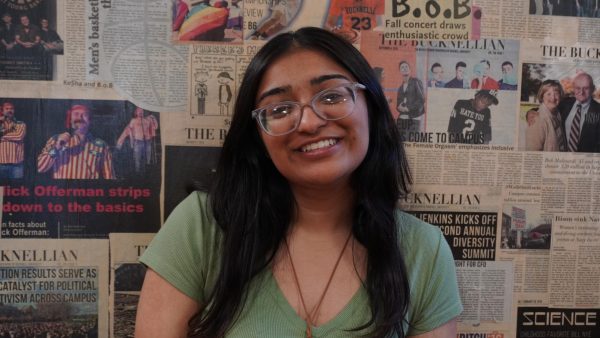Over the past two weeks, violent and alarming events have unfolded in the Middle East, sparking global tensions and impassioned discussions across the world, and that does not exclude Bucknell’s campus. It is deeply concerning how many individuals engage in these discussions without a well-informed understanding of the intricate historical and political nuances that underlie these conflicts. It’s an issue that has persisted across the course of various Middle Eastern conflicts, from Yemen to Syria to Iraq. People often form opinions without fully educating themselves about these complex situations, and the Israeli-Palestinian conflict is no exception.
Sophia Alvarez, the Office Coordinator for Jewish Life, aptly points out, “I am stuck on how students don’t care to cross-check facts on these real-life issues. Isn’t that what college teaches us? Critical thinking? Exploring?” Her observation resonates with the situation at hand.
As young adults in 2023, we are living in an era dominated by social media, where information and opinions spread like wildfire online. Platforms like Twitter, Reddit, Instagram and Facebook are filled with activism posts and statements regarding the conflict. While these posts can serve as a means to raise awareness, they can also perpetuate uninformed viewpoints and spread misinformation.
In the wake of the recent attack by Hamas on Israel, over 1,200 civilian lives were tragically lost, and up to 150 hostages were taken. It was the deadliest single attack on Israelis in history. This appalling act warrants unequivocal condemnation.
In response, Israel, a nation with a powerful military and substantial support from the U.S. government, mobilized the Israel Defense Forces (IDF) and launched fighter jet attacks on over 800 targets in Gaza. Schools, mosques and entire neighborhoods have been destroyed, as over 137,000 took cover from Israeli strikes. According to Gaza’s health ministry, as of Oct. 17, Israel’s retaliation to the attack by Hamas has killed at least 2,778 people and injured 9,700 more (Council on Foreign Relations). Simultaneously, Israel has imposed a complete siege of the territory, cutting off electricity and water and preventing the entry of food, fuel and medicine.
This has only further compounded the suffering in an area where access to basic necessities was already limited. Even prior to the war, 2023 was already the deadliest year for Palestinians in Gaza, who have been under Israeli blockade for years, in almost two decades.
However, we must recognize that this conflict is not solely rooted in recent events. It has deep historical origins, with Israel’s treatment of the Palestinian people spanning many years. The Israeli-Palestinian conflict is a complex issue with deep-seated grievances and power imbalances, a fact that often seems to get lost in the world of social media and the news.
It is essential to abandon the notion that “both sides are at fault,” as this frequently oversimplifies an extremely complex issue. On one side, there is a well-equipped nation with a formidable military backed by the United States, while on the other, there are Palestinians who have been subjected to occupation, sieges and severe control over resources. This profound power imbalance should not take away from the need to condemn acts of violence, such as the recent attack by Hamas. But it is also important to acknowledge the plight of Palestinians living under Israeli occupation. The playing field is far from level, and this imbalance must not be ignored.
The increase in Instagram posts and media attention should encourage learning rather than be a reason to ignore the complicated history of this conflict. To address this situation, we must actively educate ourselves, critically examine the information we encounter and challenge our biases. We must fact-check and question narratives, regardless of if your professor said it and regardless of if your friend or roommate said it. Only through education, empathy and a deeper understanding of these complex issues can we work towards meaningful change. By doing so, we can broaden our perspectives and gain a deeper understanding of the experiences of those who are suffering.
The lives and plight of Palestinians have been neglected. Accountability for their suffering is long overdue. Let us heed the call for informed opinions and meaningful engagement with the Israeli-Palestinian conflict.
May the lives lost to the violence committed by Hamas and Israel be valued and honored, and may this turbulent situation prompt us to pursue a more nuanced understanding of the world’s most pressing issues.
In a time when information is readily accessible, it is our obligation as students at an esteemed institution like Bucknell to surpass misinformation and ignorance through actively learning and educating ourselves.





















